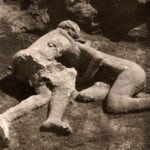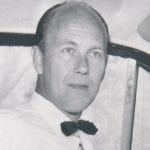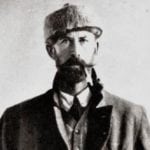 Mysteries
Mysteries  Mysteries
Mysteries  History
History 10 Surprising Stories About the Texas Rangers
 Humans
Humans 10 Philosophers Who Were Driven Mad by Their Own Theories
 Miscellaneous
Miscellaneous 10 Video-Game-Worthy Weapons and Armors from History
 Weird Stuff
Weird Stuff 10 Psychics Who Accurately Predicted Wartime Events
 The Arts
The Arts 10 Pieces of Art Inspired by a Broken Heart
 Health
Health 10 Science Fiction-Sounding New Medical Treatments
 History
History 10 Surprising Facts About the Father of Submarine Warfare
 Space
Space Ten Astonishing New Insights into Alien Worlds
 Weird Stuff
Weird Stuff 10 Bizarre Summer Solstice Rituals Still Practiced Today
 Mysteries
Mysteries Top 10 Haunting Facts About the Ghost Ship MV Alta
 History
History 10 Surprising Stories About the Texas Rangers
 Humans
Humans 10 Philosophers Who Were Driven Mad by Their Own Theories
Who's Behind Listverse?

Jamie Frater
Head Editor
Jamie founded Listverse due to an insatiable desire to share fascinating, obscure, and bizarre facts. He has been a guest speaker on numerous national radio and television stations and is a five time published author.
More About Us Miscellaneous
Miscellaneous 10 Video-Game-Worthy Weapons and Armors from History
 Weird Stuff
Weird Stuff 10 Psychics Who Accurately Predicted Wartime Events
 The Arts
The Arts 10 Pieces of Art Inspired by a Broken Heart
 Health
Health 10 Science Fiction-Sounding New Medical Treatments
 History
History 10 Surprising Facts About the Father of Submarine Warfare
 Space
Space Ten Astonishing New Insights into Alien Worlds
 Weird Stuff
Weird Stuff 10 Bizarre Summer Solstice Rituals Still Practiced Today
10 People Who Successfully Gamed The Lottery
Over the decades, people have gamed various lotteries to win millions of dollars. Some have done so legally, some definitely broke the law, and others’ methods were in gray areas. One legal tactic of gaming the lottery, for example, is by buying massive amounts of tickets. However, that is not always possible, depending on state laws.
This is why several mathematicians, statisticians, and economists have closely studied the lottery to determine their best chances of winning. Other times, criminal gangs have bribed lottery employees to help them cheat—even on live television. In few instances, lottery employees themselves have inserted codes into lottery computers or found other creative ways to cheat.
10 Stefan Mandel

In the 1960s, Romanian economist Stefan Mandel developed an algorithm that allowed him correctly predict five of the six numbers of the winning lottery ticket in the Romanian lottery. He called his method “combinatorial condensation.”
He had family and friends pool money to purchase thousands of tickets containing the five numbers and an extra random number. He won 78,783 lei ($19,300). With his $4,000 share of the winnings, Mandel left Romania for Australia, where he started to cheat the lottery again.
Mandel realized he could win the Australian lottery if he bought every available ticket. This was because the Australian lottery only allowed players to select six numbers between 1 and 40. Mandel would definitely win if he bought each of the 3,838,380 possible combinations at $1 per ticket. (As long as the jackpot was greater than $3,838,380, he was good.) Mandel got some investors and won a number of times before the Australian lottery adjusted its rules to block the loophole.
The determined Mandel turned his attention to the Virginia lottery in the United States, which had number combinations between 1 and 44. This meant there were 7,059,052 combinations, which was way lower than the over 25 million possible combinations in other lotteries across the US. Mandel set up the International Lotto Fund (ILF) under his company, Pacific Financial Resources, and sold shares to 2,524 investors.
Each investor put at least $3,000 into the scheme. Mandel purchased computers and printers and hired 16 people to print some seven million tickets. However, he could only submit 5.5 million tickets before the lottery closed in February 1992. This reduced his possibility of winning from 100 to 78 percent. Luck shone his way when he won a $27,036,142 jackpot and over $900,000 in secondary prizes.
The Virginia Lottery refused to pay Mandel and initiated an investigation that involved 14 various agencies, including the CIA, FBI, and the Australian Securities Commission, which determined that he had done nothing wrong. Mandel paid himself a $1.7 million consultancy fee and gave his investors only $1,400 each. Today, several US states have laws to prevent people from copying Mandel’s winning tactic.[1]
9 Nick Perry
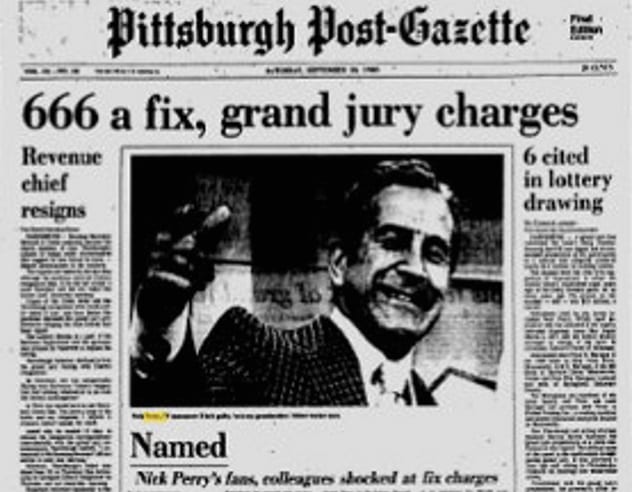
In 1980, Nick Perry was exposed as an accomplice in one of the worst scandals to ever rock a US lottery. At the time, Perry was the host at the television studio where the winning numbers of the Pennsylvania Daily Number (now called Pick 3) were selected.
Numbered balls were put inside a machine that spun and rolled the balls before sending three winning balls up to the top. The numbers on the balls were considered the winning number. This was done on live television, and Perry was host—a job he had held since 1977.
Unknown to viewers, Perry and several television and lottery office employees had conspired with the Maragos brothers to game the show. The group painted every ball except those numbered “4” and “6” with a latex paint that made them heavier than normal. This meant the winning balls would be a combination of “4” and “6.”
On April 24, 1980, they won $3.5 million after the machine drew the infamous number “666.” However, they never got the money; lottery officials became suspicious at the sheer number of tickets with only “4” and “6” picked that had been purchased all around the state.
Investigations soon revealed the criminal link between Perry and the Maragos brothers. The brothers avoided jail time by snitching on Perry and some other lottery officials. Perry got seven years in prison, while other lottery employess got jail terms of two years or less. Perry denied any guilt until his death in 2003.[2]
8 A Criminal Gang And Several Blindfolded Children
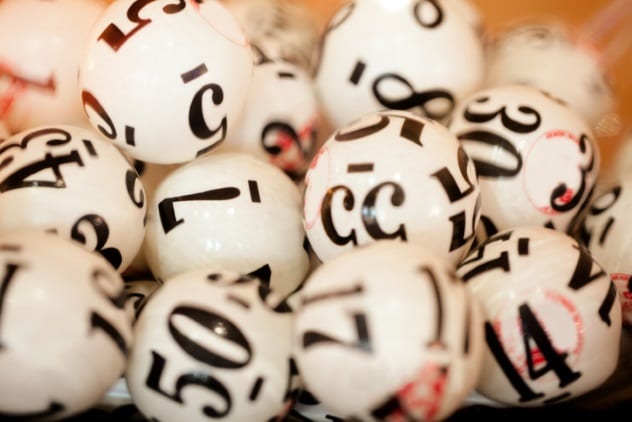
In December 1998, the Italian lottery became enmeshed in a scandal after it was discovered that a criminal gang had been rigging it. At the time, the winning numbers of the lottery were selected by blindfolded children picking balls from a metal basket.
However, a syndicate had bribed the children and trained them to pick special balls that were smoother and bigger than the other balls. Curiously, most of the children were related to employees of the finance ministry that oversaw the lottery. One of the most affected lotteries was held in Brescia, Italy, and involved a fraudulent win of over £3 million.
Trouble started when the finance ministry employee running the scheme was posted to another office. He informed the group about ending the fraud. However, the group refused and tried to coerce him to encourage another colleague to take over.
The ministry employee refused and insisted on ending the scheme. The gang responded by harassing the employee and his relatives. They even shot at his car and some other businesses linked to his relatives. His wife soon got fed up and informed the police, blowing the scheme wide open.[3]
7 Jerry And Marge Selbee
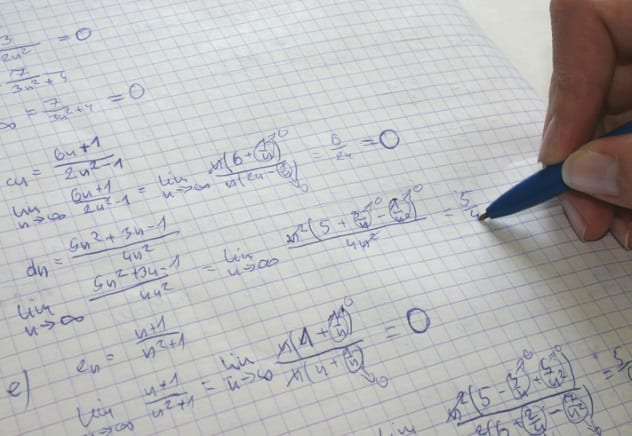
In 2003, Jerry Selbee discovered a loophole in the Michigan WinFall lottery. Unlike the Mega Millions lottery, where the jackpot continues to increase until someone manages to get all six numbers, the jackpot of the WinFall lottery stopped increasing when it reached $5 million.
Instead, if nobody got all six numbers, the money was shared among people with five numbers, then four, and then three. This is called a roll-down. Jerry, a math graduate, discovered that he had a higher probability of winning a roll-down, so he started purchasing tickets during roll-downs to win two times his investments.
His wife, Marge, soon got involved, and they started investing hundreds of thousands of dollars into the scheme. Desperate for more wins, the couple founded G.S. Investment Strategies to allow friends and family to buy shares in their lottery scheme.
In 2005, the couple abandoned the Michigan WinFall lottery for the Massachusetts Cash WinFall. They drove 14 hours to Massachusetts to buy hundreds of thousands of tickets during roll-downs. Their game was up in 2011, when The Boston Globe began investigating massive ticket sales at some stores where the couple had been buying tickets.
The Boston Globe uncovered the plot, along with a similar scheme run by some math students at MIT. By then, the Jerry and Marge had won $26 million. Investigators concluded that the couple and the MIT students had not broken any laws. However, the loophole forced the state to shut the game down.[4]
6 Joan Ginther

Joan Ginther is an elusive multiple lottery winner who used her knowledge of mathematics and statistics to win the Texas lottery several times over. She is confirmed to have won four times, but speculators believe she could have notched more victories. Several of her friends have also won the lottery, leading to speculation that she could have used them as fronts.
However, we cannot confirm this because Ginther, who resides in Las Vegas, neither grants interviews nor talks about her winning tactics. Ginther won the lottery for the first time in 1993, when she won $5.4 million. Some think this win was a case of luck that prompted her to devise a way to game the system. Some think she monitored the amounts of tickets sold during lotteries to determine her probabilty of winning.[5]
5 James Harvey

In 2005, James Harvey, a math student at the Massachusetts Institute of Technology (MIT), devised a way to game the Massachusetts Cash WinFall lottery. He discovered the lottery was designed so that $1.20 in prize money was paid for every $2 ticket sold. However, that increased to $2.30 for every $2 ticket during roll-downs.
Harvey teamed up with a group of about 50 MIT students to purchase tickets during roll-downs. They purchased $1,000 worth of tickets and won $3,000. Harvey scaled up his business in 2010, when he and a partner formed Random Strategies Investments, LLC, to get more investors, buy more tickets, and make more money.
The Selbees were gaming the Massachusetts Cash WinFall lottery at this time as well. And so was a group from Boston University. However, Harvey had the upper hand because he knew how the lottery worked and even legally received guidelines from the lottery office. Like the Selbees’ operation, the whole thing crashed after The Boston Globe investigated and revealed the plot.[6]
4 Eddie Tipton
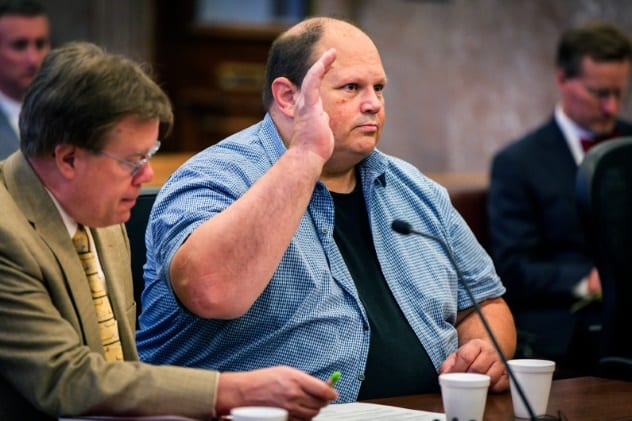
On December 23, 2010, a man dressed in a hooded sweatshirt walked into a QuikTrip store in Des Moines, Iowa, and purchased a ticket in the ongoing Iowa Hot Lotto. Six days later, he was declared the winner of the $16.5 million jackpot after matching all six numbers correctly.
The jackpot went unclaimed until November 2011, when an attorney named Philip Johnston called the lottery office to claim the winnings. He got the serial number of the ticket right but got the clothing he was wearing at the time he purchased the ticket wrong. He later confessed that he was claiming the money for a client who wanted to remain anonymous.
The lottery office refused to release the money because the Iowa lottery rules mandated that the winner show himself. A second attempt to claim the money using a law firm fronting for a trust based in Belize failed after lottery organizers discovered that Philip Johnson was the president of the trust. They became suspicious and launched an investigation.
Authorities had surveillance video of the man who bought the ticket. However, they could not identify him, so they released the footage, hoping the public would help. The man was revealed to be Eddie Tipton. He worked at the lottery office and had written the software that picked the winning number. Authorities later discovered that Tipton had programmed software into one of the two computers that determined the winning number.
As Tipton stood trial for fraud, an anonymous caller tipped authorities that Tipton’s brother, Tommy Tipton, had won the lottery ten years earlier. In 2007, one of his friends, Robert Rhodes, also won the $783,257 from the Wisconsin lottery. Tipton was tried on two counts of fraud and received a 25-year sentence.[7]
3 Zhao Liqun

In 2005, Zhao Liqun, a Chinese man who operated three lottery stores for the Chinese Welfare Lottery, discovered a loophole that allowed him to buy tickets with the winning numbers within five minutes of the announcement of said numbers. Liqin exploited this loophole to win 28 million yuan ($3.76 million) within two years.
Liqun often used his friends and neighbors as fronts to cash in the winning tickets so that he would not arouse suspicion. However, he was arrested in January 2007, after lottery officials discovered the claimants of the lottery tickets were not the same people who had purchased the tickets. Liqun received a life sentence and lost his properties to the government.[8]
2 Remmele Mazyck
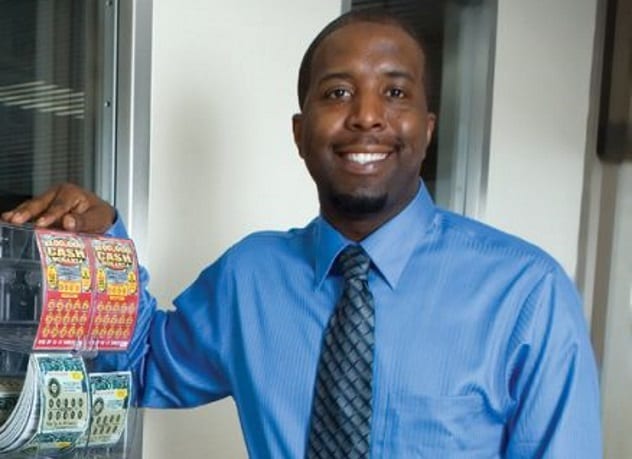
In 2009, Remmele Mazyck, a deputy security director at Arkansas Lottery, started a scheme to game the very lottery he worked for and had helped to set up. The lottery organizers often gave some tickets out for free for promotional purposes.
Mazyck collected the tickets but never gave them out. Instead, he scratched them to see if they were winners. He only cashed in wins below $500 because higher wins would have required him to visit the lottery office. The scam was only revealed in October 2012, when he attempted to cash in lottery tickets supposedly sold by a defunct store.
Investigators revealed Mazyck had claimed over 22,000 winning tickets valued at $478,000 between 2009 and 2012. However, his attorney claimed this was merely the value of the tickets that he had fraudulently obtained and that not all of them had won.[9] Mazyck was sentenced to 37 months in prison and ordered to pay over $482,000 in restitution.
1 Edward Putman

In 2009, Edward Putman won the £2.5 million jackpot of the UK National Lottery. His win was scandalous at the time because he was a convicted rapist. In 1991, he was sentenced to seven years in prison for raping a pregnant 17-year-old.
Putman attracted more controversy in 2012, when he was charged for receiving £13,000 in government benefits despite having won the jackpot. Putman received the benefits after claiming he was “too ill to work,” “too broke to eat,” and was about to be evicted from his home. This was even though he owned two homes and several sports cars worth millions of pounds.
Putman was in the news again in 2016, after an anonymous person informed Camelot Group—which operates the lottery—that Putman had never won. Investigators later revealed that Putman had cashed in the jackpot with fraudulent tickets he had deliberately damaged to obscure some important numbers.
However, police said Putman could not be charged for fraud because Giles Knibbs, the Camelot Group employee he supposedly used to pull off the crime, had committed suicide. Investigators believe Knibbs informed Putman of the winning numbers.[10]
Read about more sneaky ways people have beaten the house on 10 Audacious Lottery Scams And Scandals and 10 Clever Casino Scams In Recent History.




